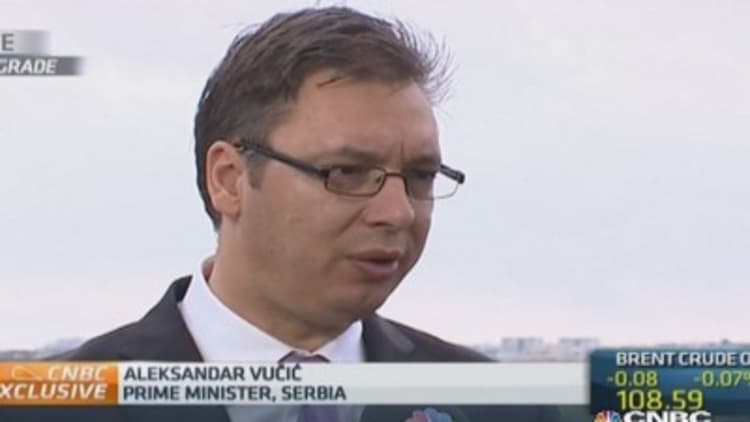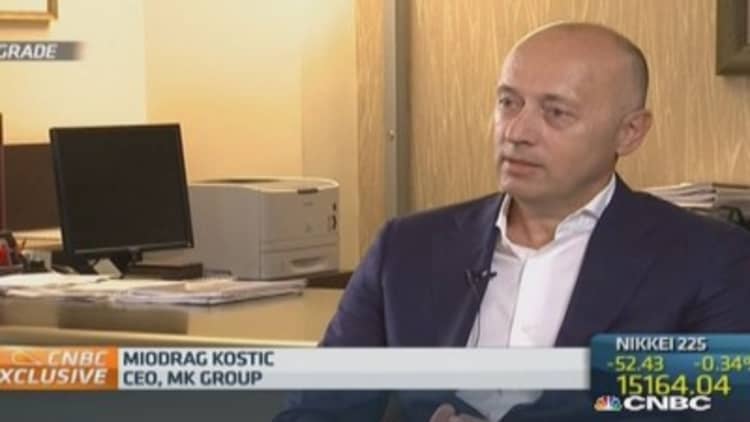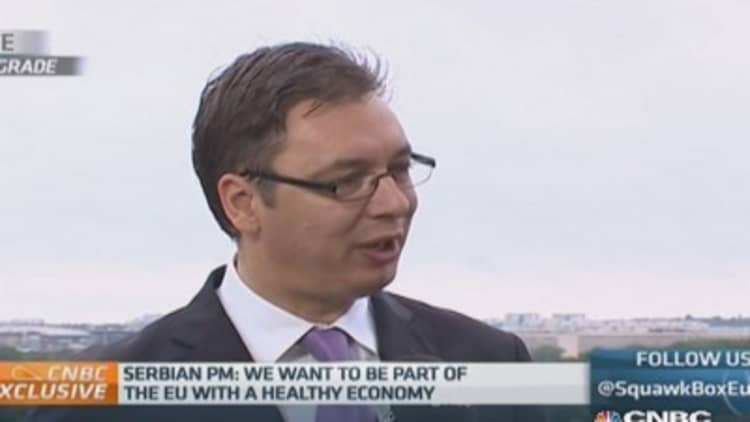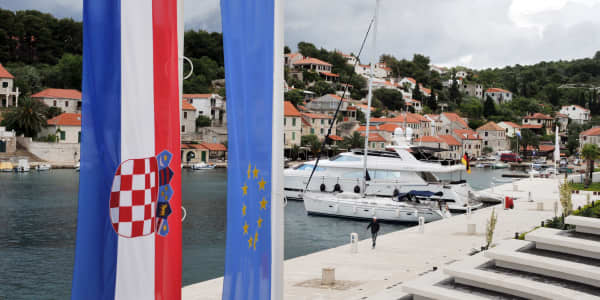An international pariah at the end of the 20th century for its role in conflicts in the former Yugoslavia and Kosovo, Serbia has undergone a long rehabilitation to reach where it can approach the European Union (EU) for membership.
"Our main orientation and goal is to be part of the EU… that is very rational and reasonable," Prime Minister Aleksandar Vučić told CNBC in Belgrade on Friday.

Vučić is symbolic of Serbia's rehabilitation into the West. During the breakup an war among states of the former Yugoslavia, he served as Minister of Information under President Slobodan Milošević, who was later charged with war crimes and crimes against humanity.
U-turn
However, now Vučić is a pro-European reformist steering Serbia's EU bid. In particular, he has led the way in normalizing relations with Kosovo—a key requirement for EU membership.
Vučić was rewarded at the start of this year, when Serbia was allowed to start accession negotiations. This means it is on route to membership—as long as reforms continue.
"All of Serbia is ready to join the EU," Serb agriculture tycoon Miodrag Kostić told CNBC on Friday.
"If you look at the map, it makes no sense that Serbia should be out of the EU and we will have much more benefit if we join as soon as possible."

This June, Vučić called on ethnic Serbs living in Kosovo to participate in its national elections, following years of encouragement by Belgrade to boycott them. His efforts were rewarded when tens of thousands of Kosovar Serbs turned out at the polls.
Difficulties materialized however when the election results proved inconclusive, with the outgoing prime minister narrowly failing to secure enough seats to hold power.
This ignited a row between the ruling party and the opposition over who should form the next government. This has been taken to Kosovo's constitutional court, where the debate is seen dragging on for months.
During this time, Kosovo will remain without a formal government. This is a big blow to Vučić, because stability in the Balkans is viewed as crucial to securing Serbia's accession. Its bid is unlikely to progress while Kosovo on its doorstep remains so unstable.
'Worse than hell'
Crunch time for the prime minister and his Serbian Progressive Party could be autumn, when a raft of public sector cuts come into effect, aimed at decreasing the country's sky-high deficit prior to joining the EU. Strict cuts are planned to the number of government employees and to wages and pensions. New privatization, bankruptcy, labor and construction laws are also slated.
"That is all going to come in with a bang potentially cause a lot of social tension," William Bartlett, an academic specializing in south-east Europe at the London School of Economics told CNBC.
"It will be bad news for Serbia if it is going to run into economic and social problems in autumn, but has no good news to offer on accession."
Vučić also saw problems ahead. "It is not an easy situation—we have been delaying all reforms for decades."
"Whenever you try do any kind of reforms in the Balkans—it doesn't matter whether that is Croatia, Bosnia or Serbia—it is going to be worse than hell…But I am absolutely dedicated."
Record flooding
Meanwhile, the country is grappling with the aftermath of this year's floods, which killed 60 people across Serbia, Croatia and Bosnia.
Preliminary estimates put the damage at $2 billion-$2.7 billion in Serbia. The agriculture sector, which accounts for about 10 per cent of gross domestic product (GDP) was particularly badly hit, with most of the arable land in affected areas destroyed. These places also remain infested with mosquitoes, a problem which extends to a lesser degree all the way to Belgrade.
As an EU candidate country, Serbia can apply for financial aid from its Solidarity Fund. This helps member states which have suffered severe natural disasters, assuming the damage exceeds 0.64 percent of gross domestic product. In addition, the EU allocated 65 million euros ($88 million) in May to help the three countries affected.

Vučić reiterated that financial assistance was not Serbia's rationale for joining the union.
"We do not expect someone else to resolve all our problems; we have to tackle our problems," he to CNBC. "We are not going to wait for any European aid or support."
—By CNBC's Katy Barnato in Belgrade, Serbia




